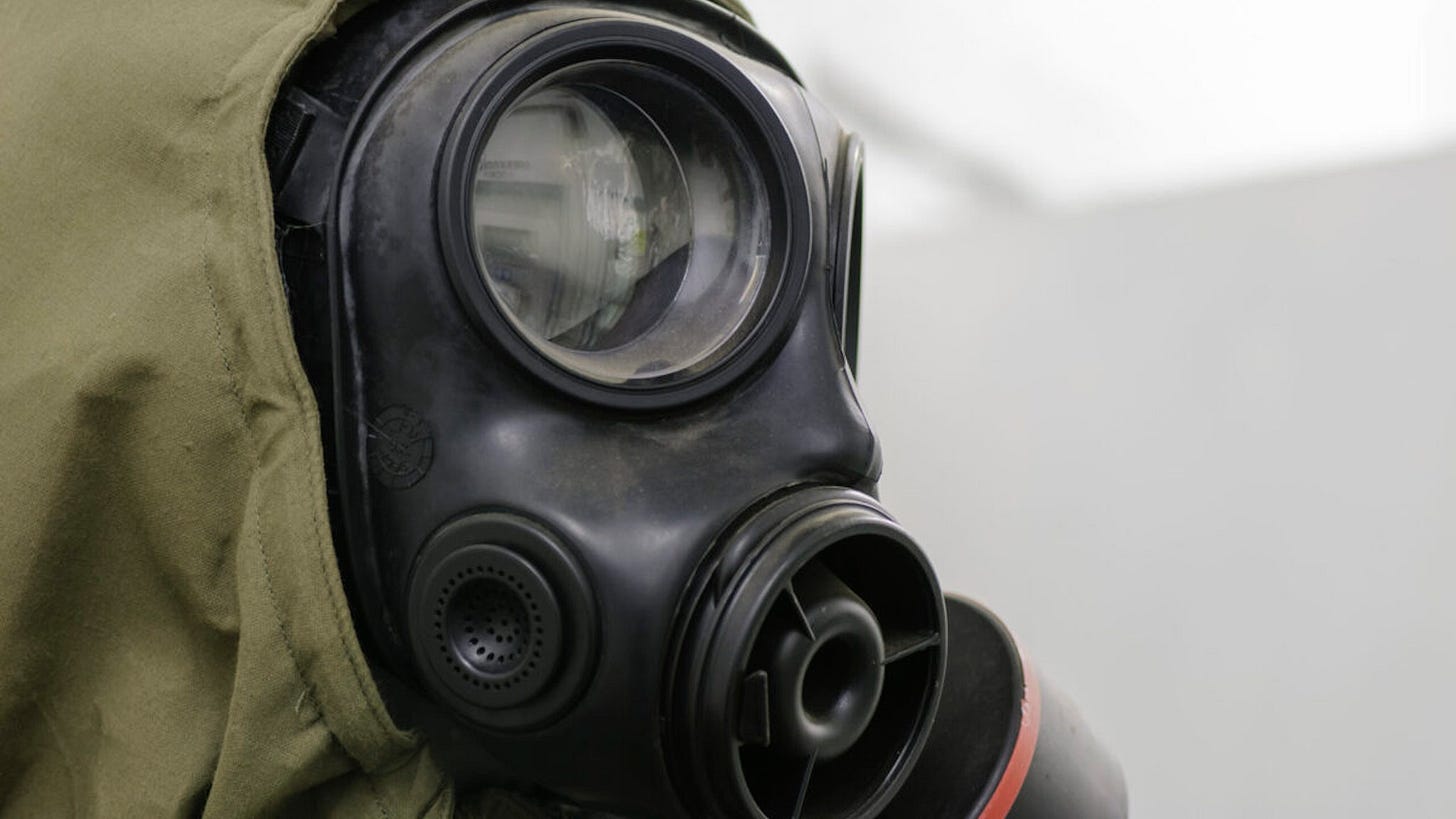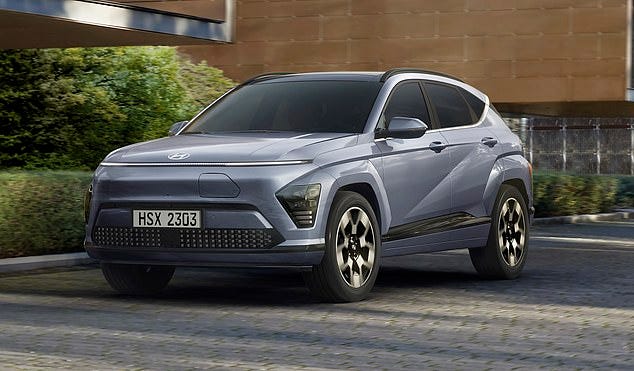The U.S. Killed 3 Asian Kids with Bombs Dropped 50 Years Ago, Last of the WWI Chemical Poisons Destroyed, STL Mayor Admits Gun Control Won't Lower Murder Rates (The Five for 07/12/23)
Hey, welcome to The Five.
Just a few updates before we dive in.
A. I’ll update you more on Friday, but I’m starting a cash referral system for business leads…if you like The Five and like cash money, stay tuned.
B. Been a minute since I’ve talked about this…but I’m going to finish my first fiction project/novel (about smuggling Fentanyl through farm parts in the Midwest). The Deere Pipeline will release in e-book and audbiobook formats for free…hopefully this year.
C. Mesus, the artist I manage, has a new video and single out today! Check it:
Now let’s dive into the news.
[one]
The Biden administration is sending cluster bombs to Ukraine. Almost all of the nations on earth have agreed not to use this weapons system, because unexploded bombs still kill civilians for decades after a war ends.
From USA Today:
The Biden administration’s decision to send cluster munitions to Ukraine is shortsighted, ignores clear lessons from history and erodes significant international norms. As a result, new casualties will continue for decades after the conflict in Ukraine comes to an end.
Recent history confirms this negative assessment. U.S. cluster munitions have left a trail of human misery in the countries of Vietnam, Laos, Cambodia, Iraq, Kuwait, Serbia, Kosovo and Afghanistan, to name a few. Last year, the United States spent more than $375 million to clean up conventional weapons, including cluster munitions, in more than 65 countries.
My own exposure to the devastating impact of cluster munitions began as a Mennonite Central Committee relief worker in Laos in the 1980s. During the Vietnam War, the United States dropped up to 270 million cluster munitions on neighboring Laos during America's secret war against communist forces and against their flow of supply along the Ho Chi Minh Trail.
In 1994, I worked with the Lao Committee for Social and Veterans Affairs and the Mines Advisory Group to begin the humanitarian demining program that continues to this day. As a board member of Legacies of War, I have continued to follow developments in Laos closely. Today, 50 years after the last U.S. bombs were dropped on Laos, there are still more than 4,000 people working to find and destroy cluster munitions.
This is a more personal story to me…because part of my family is from Laos, and more than 1,000 people have died between 2008-2022 from American bombs now a half century old.
Below, Soupha, a 9-year-old boy in Laos, had his stomach ripped open when he thought he was picking up a baseball, which was in fact a 1960’s American cluster bomb. He survived, but it killed two of his friends standing nearby. This occurred in January 2023 17,609 days after the end of the Vietnam War.
There’s been a bit of outcry over this, but I’m left baffled as to where the anti-war left, so prominent in the 00’s during the Dubya years, has all but disappeared.
This is horrific, and largely ignored.
[two]
*Note, this is a story that’s a summary of a Washington Post story…only because I’m out of free article sa for the month.
Well, the weapons of WWI are finally gone, as of last week.
The Daily Wire reports:
The last of the U.S. chemical weapons stockpile was destroyed last week at a Kentucky munitions plant, the Pentagon said Monday.
In 1986, Congress ordered the destruction of America’s chemical weapons, and 11 years later, the U.S. joined 192 countries in the Chemical Weapons Convention of 1997, requiring the weapons’ complete elimination by September 30 of this year, The Washington Post reported. Chemical weapons were first used on a large scale in the trenches of Europe during World War I, causing horrifying deaths through suffocation and wrecking of the nervous system.
At its peak, America’s chemical weapons stockpile reached 30,000 metric tons, requiring the country to take decades to destroy the weapons while seeking the safest way to eliminate the chemical agents.
“Destroying the remainder posed a greater challenge because it involved the more complicated approach of neutralizing these munitions’ chemicals,” said Douglas Bush, an Army assistant secretary.
The final chemical weapon to be destroyed was a rocket filled with a nerve agent called sarin, “one of the most toxic of the known chemical warfare agents,” according to the Centers for Disease Control and Prevention (CDC). The CDC says that just 1 to 10 mL of sarin can be fatal, and the chemical is even more dangerous because it is odorless and tasteless. During World War I, chemicals such as chlorine, phosgene, and mustard gas killed approximately 100,000 people, according to the United Nations, The Hill reported.
…the world just got a little better.
[three]
Turns out the “cost savings” on electric vehicles (EVs) is a bit of a hard number to come up with.
The US is in the middle of an electric car revolution. This week, Tesla announced a record surge in sales in the second quarter of the year - delivering 446,140 cars worldwide in the three months leading up to June, outdoing its own prediction of 445,000.
Business has been bolstered in the US by federal tax credits for electric vehicles that have made them more accessible than ever for Americans.
Electric cars are much more expensive to buy, but usually cheaper to run - as maintenance and fuel costs can fall substantially with an eco car.
However experts are warning that it takes an average of six years to break even on a purchase - and it can take up to a decade for the premium to pay off.
Things to not here:
A. “Breaking even” isn’t really a reason a consumer buys a Tesla—you buy it to love it. Just like you buy a Dodge Charger even though a Mitsubishi Mirage hatchback can be had for just $18K new and gets 40 mpg (non-hybrid—it’s just that small);.
B. It’s worth questioning if “cost” is a reliable metric for something like a car. I’m assuming the savings will be more for a Tesla or other pure EV if you’re driving 80 miles a day than if you’re driving eight, which makes the study a bit unreliable here.
C. As far as pure environmental impact goes…The Drive makes the case that hybrids have more utilitarian good to offer:
It sounds like heel-dragging from a latecomer whose first electric car was met with a lukewarm reception. But if you take a closer look at how efficiently hybrids and EVs use their batteries, you’ll realize Toyota is actually right: hybrids have a bigger role to play in decarbonization than EVs will for a long time, if ever. Fact is, we need to use our limited battery supplies to deliver the maximum reduction in CO2 emissions across the auto industry, and soon. We need to use every last kilowatt-hour to its fullest, and in the near-term, that doesn’t mean going all-in on EVs. It means leaning back into hybrids.
The data is conclusive: Electric vehicles generate fewer carbon emissions than those powered by combustion engines over their lifetimes, and what you’re about to read doesn’t dispute that. But EV adoption is tripping over range limitations, patchy charging networks, and high prices resulting from the cost of the batteries that power them.
[four]
The mayor of my current hometown, St. Louis, is backpedaling from private text messages in which she admitted gun control doesn’t work.
St. Louis Mayor Tishaura Jones' office is in damage control mode after someone at City Hall released thousands of text messages from her personal cell phone, some of which raise questions about her views on gun laws.
The messages were released earlier this week under an open records request.
"Chicago has strict gun laws as well but that doesn't deter gun violence," Jones texted in a group chat to her father Virvus Jones and advisor Richard Callow on March 21. "It's about investing in the people."
On the surface, the mayor's private remarks appear to contradict some of her public statements calling for stricter gun control laws in Missouri.
"Our state's lax gun laws make our challenge even more difficult," Jones said after a mass shooting in downtown St. Louis last month. "The legislature's lack of action on gun safety laws encourages the proliferation of guns on our streets and puts our responding officers directly in harm's way," she said.
Missouri Republicans pounced on the mayor's remarks as evidence of her hypocrisy on the issue.
The mayor's office issued a statement through one of her spokesmen on Friday afternoon seeking to clarify her position.
"Gun laws are just one part of the solution," Jones spokesman Nick Desideri said. "There’s a difference between deterring behavior and making it harder to get firearms and weaponry; for example, there’s no doubt that gun laws in the blue region around Newark help reduce violence as opposed to here."
In her private text messages, the mayor also made a reference to prolonged community investment delivering a significant reduction in violence in Newark, New Jersey.
"Newark, NJ has the same size population, same size police force, and similar racial demographics, yet had 50 murders in 2022," the mayor wrote. "I visited these programs first hand and I know that they work. We just need the will…."
[five]
Finally, Facebook’s new Twitter Competitor, Threads, is already being accused of mass censorship.
Independent journalist Michael Shellenberger is sounding the alarm on the censorship that has quickly emerged on Meta's newly-launched social media platform Threads.
Threads, the Instagram-linked app rolled out last week by Mark Zuckerberg, is widely seen as being the closest rival to Elon Musk's Twitter. Zuckerberg boasted its 30 million users within 24 hours of the launch and the app surpassed 100 million users in under a week.
Upon signing up, Shellenberger's initial reaction to Threads is that it's "kind of boring" and that there's "no innovation" coming from the app many say looks very similar to Twitter (Musk is threatening to sue Meta over alleged theft of trade secrets).
But "literally within the first few minutes" of being on Threads, he noticed rampant censorship taking place, citing the platform's throttling of accounts like conservative activist Rogan O'Handley.
In an interview with Fox News Digital, Shellenberger called out the practice of "secret blacklists" that Zuckerberg previously implemented on Facebook was being carried over to Threads, implementing censorship supposedly to "protect democracy," Shellenberger characterized it as "Orwellian." He also blasted the hypocrisy of Meta cracking down on so-called "misinformation" from conservatives but allowing falsehoods from the left, citing the New York Times' reporting last week falsely suggesting the claim that "Covid-19 vaccines do not prevent transmission of the disease" has been debunked.
"There is no democracy without freedom of speech. Everybody knows this, and yet they're trying to curtail freedom of speech in the name of democracy. It's creepy. It's totalitarian. I never thought I would see it in my own country in my lifetime. And yet that's exactly what's happening at this very moment," Shellenberger said.
Aside from this controversy, I’ve found Threads to be a poorly designed, uninteresting app that has shown me nothing but junk content. It appears the “100 million users” metric is being boosted because you can’t delete Threads without destroying your Instagram accounts as well.
Until the next one,
-sth








